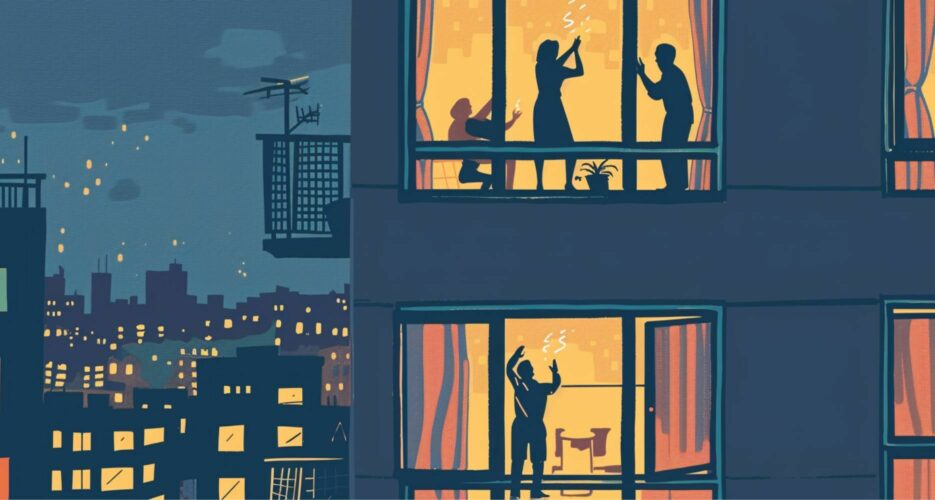Experts point to inadequate construction and dispute resolution as the main factors fueling the surge in conflicts
South Korean apartment dwellers are grappling with a growing crisis as inter-floor noise disputes in densely populated apartment buildings have led to a sharp rise in violent crimes, severe psychological distress and ineffective dispute resolution.
According to a report from the Citizens’ Coalition for Economic Justice (CCEJ), severe crimes triggered by noise disputes between floors, such as murders and assaults, have seen a tenfold increase from 11 cases in 2016 to 110 in 2021.
South Korean apartment dwellers are grappling with a growing crisis as inter-floor noise disputes in densely populated apartment buildings have led to a sharp rise in violent crimes, severe psychological distress and ineffective dispute resolution.
According to a report from the Citizens’ Coalition for Economic Justice (CCEJ), severe crimes triggered by noise disputes between floors, such as murders and assaults, have seen a tenfold increase from 11 cases in 2016 to 110 in 2021.
Get your
KoreaPro
subscription today!
Unlock article access by becoming a KOREA PRO member today!
Unlock your access
to all our features.
Standard Annual plan includes:
-
Receive full archive access, full suite of newsletter products
-
Month in Review via email and the KOREA PRO website
-
Exclusive invites and priority access to member events
-
One year of access to NK News and NK News podcast
There are three plans available:
Lite, Standard and
Premium.
Explore which would be
the best one for you.
Explore membership options
© Korea Risk Group. All rights reserved.
No part of this content may be reproduced, distributed, or used for
commercial purposes without prior written permission from Korea Risk
Group.












